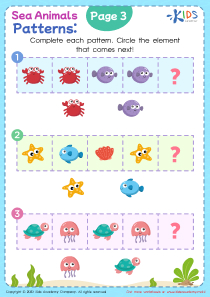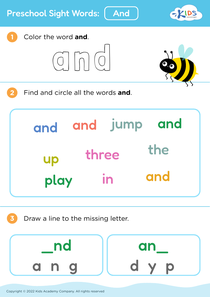Poems worksheets activities for Preschool
5 filtered results
-
From - To


Baa Baa Black Sheep Printable
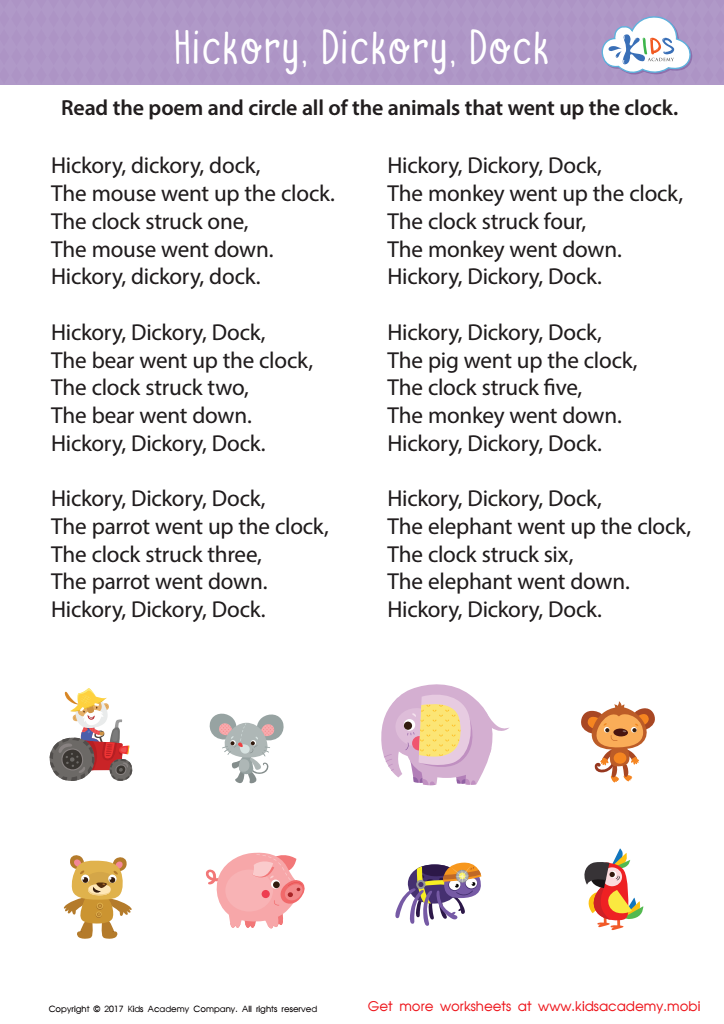

Hickory Dickory Dock Sequencing Worksheet
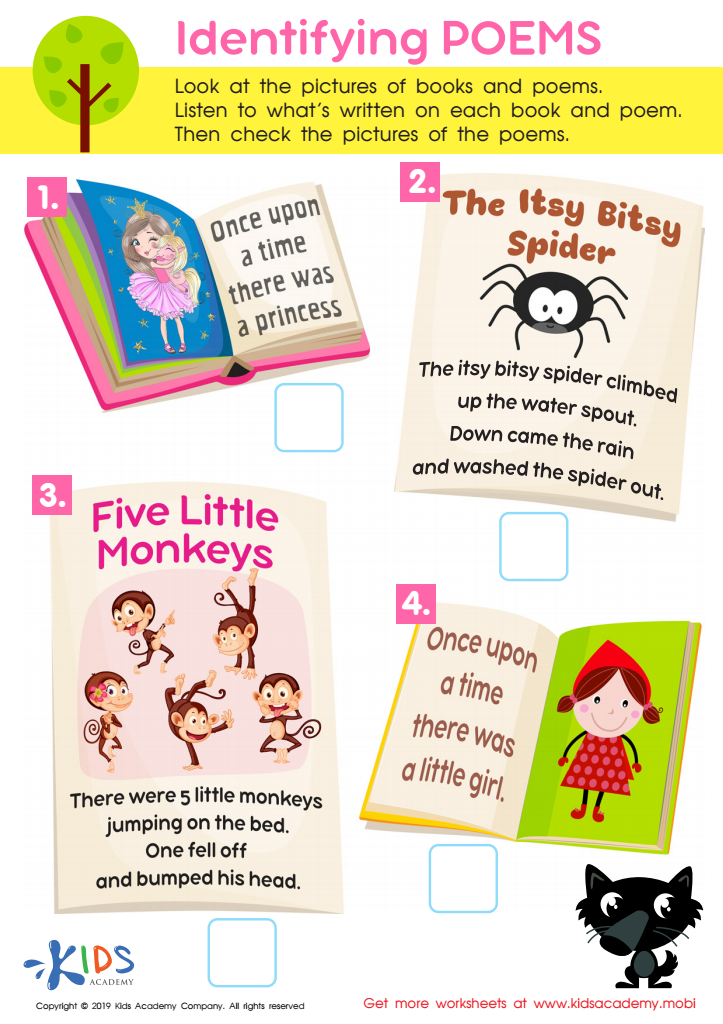

Identifying Poems Worksheet
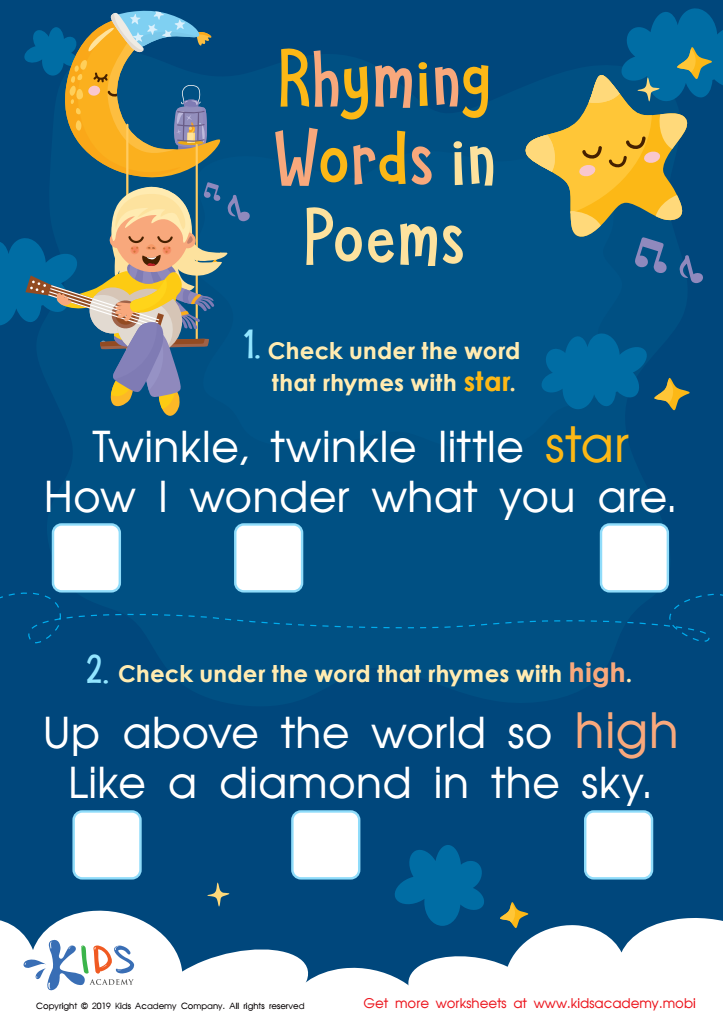

Rhyming Words in Poems Worksheet
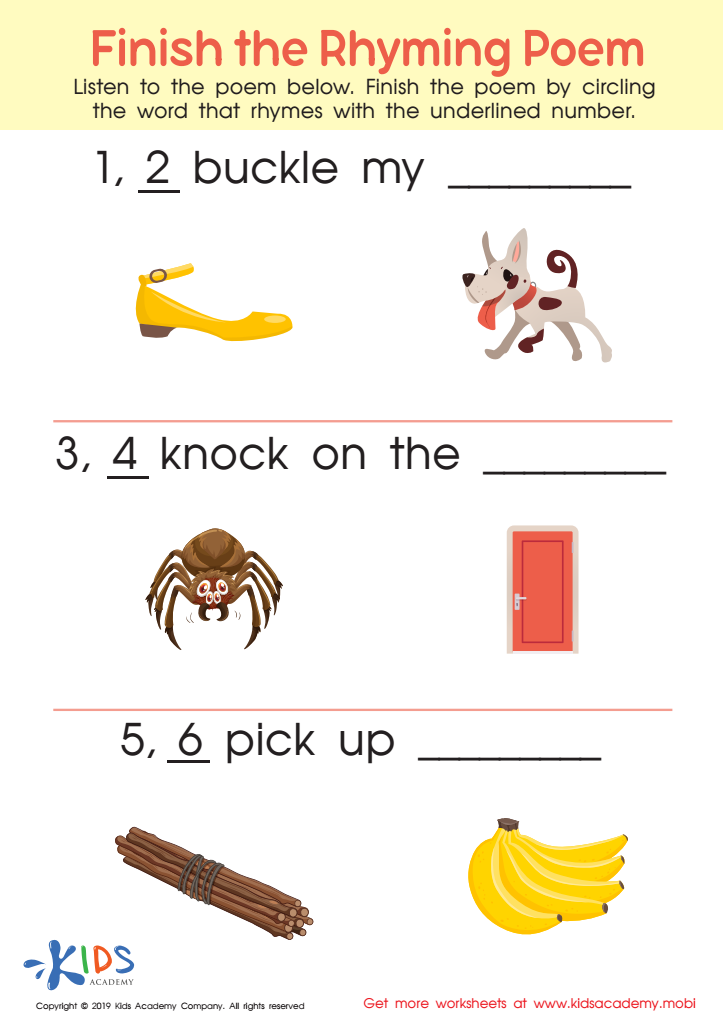

Finish Rhyming Poem Worksheet
In the vibrant world of early childhood education, Poems worksheets activities for Preschool stand out as an essential tool in nurturing the young minds of preschoolers. These worksheets are not only a source of fun and engagement but are also pivotal in laying the foundation for a range of critical skills that are vital for the holistic development of children in their formative years.
First and foremost, Poems worksheets activities for Preschool introduce children to the beauty of language. Through the rhythm, rhyme, and repetition that characterize poems, young learners develop an ear for phonics and begin to understand the musicality of words. This early exposure is crucial in fostering a love for reading and enhancing vocabulary, as children become curious about new words and their meanings.
Moreover, these activities stimulate cognitive development. As children engage with poems, they are encouraged to visualize the content, boosting their imagination and creative thinking skills. This not only aids in developing their comprehension skills but also encourages them to express their thoughts and feelings, contributing to emotional intelligence.
Social skills, too, are honed through Poems worksheets activities for Preschool. Reading and performing poems in a group setting enable children to learn about cooperation and taking turns. It becomes a shared experience that promotes empathy, as children explore different themes and emotions through the poems, understanding that their peers may have similar or different feelings.
Additionally, Poems worksheets activities are versatile tools that can be integrated across various subjects. From counting rhymes that introduce basic math concepts to nature poems that explore science, these activities offer a cross-disciplinary approach that enriches preschool education.
In conclusion, Poems worksheets activities for Preschool are more than just a playful engagement. They are a comprehensive educational tool that supports the development of language, cognitive, social, and cross-disciplinary skills, making them an indispensable part of preschool learning. Through these activities, we not only teach children about the world around them but also encourage them to find their voice in it.

 Assign to My Students
Assign to My Students












